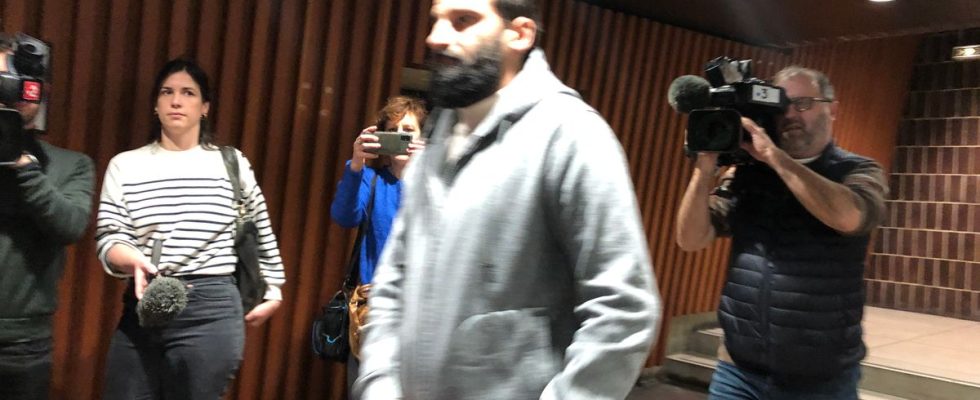This is the story of a network that took certain corners of France for an open-air trash bin. This Monday, at the Lille court in the North, the trial of ten defendants suspected of having participated, directly or indirectly, in vast waste trafficking between Belgium and France, between 2018 and 2021, opened. The trial must last five days, as the number of illegal or illegal dumps, within several dozen sites, is significant.
The organization put in place made it possible to import waste (often household or building work) from Belgium to France without worrying about the various rules in force in the Environmental Code. Rules that the president of the court, Arabelle Bouts, the real star of the first half-day of hearing, did not fail to mention.
A well-established organization
Traceability of waste, prefectural declaration for collection and transport… With pedagogy, the president retraced the legal obligations which were totally forgotten in this extraordinary affair. To the point of justifying the support of the Jirs (specialized interregional jurisdiction) of Lille to direct the investigation.
With meticulous precision, without ever stammering and keeping the rhythm, Arabelle Bouts recounted, in a Prévert-style list, all the crimes, according to the chronology of the investigation. The organization was well-established, agile, and it took advantage of certain flaws.
It all started in August 2019 with a complaint from the Suez company. Five of its waste reprocessing centers, in five different departments, had just been cheated by two companies which did not respect the deposit contract. “An abnormal volume of waste was deposited on the sites and the companies never paid the price to pay for each spill,” explains the president.
“In remote areas”
Same scam against Veolia with the same identity theft of third-party companies. In total, the investigation identified 7,600 tonnes of waste imported for a loss of more than one million euros against the two reprocessing giants. But the small traffic did not stop there. Little by little identified by the waste recovery centers, the activities then moved to Lorraine, near the Belgian border, “in remote areas”, insists the president.
Here, in a schoolyard, there on military land, another time on the edge of a forest or on a former disused steelworks site. The strange behavior of trucks registered in Belgium or Poland, even during the period of confinement linked to Covid-19, ended up alerting local residents and the gendarmerie. A heavy goods vehicle driver, caught in the act of illegally dumping, explained that he was guided by telephone to find out where he should dump his mobile bin.
As the Lorraine sector became more closely monitored, traffic was once again reorganized towards the north of France. Sites were leased to serve as official waste treatment centers. They ended up in landfill without the owner receiving the rent from the lease. The costs of removing this dumped waste run into hundreds of thousands of euros.
Already convicted for irregular waste management
This trial with “important issues in terms of public health” constitutes “the first Jirs case of waste fraud”, underlined, before the opening of the hearing, François Saint-Pierre, lawyer for Suez. For Muriel Ruef, lawyer for the France nature environment, Lorraine nature environment and Air vigilance associations, “the educational challenge of this trial” is to highlight “a fairly massive cross-border traffic”.
According to the investigation, the team was mainly structured around the Demeter family, five members of which are referred to court. The aggravating circumstance of “organized gang” was retained. On the stand, the main defendant, Johnny Demeter, hipster beard and gray hooded sweatshirt, is at risk. He has already been sentenced to two years in prison for irregular waste management in 2016 and eight months in prison for fraud in 2019, with a ban on carrying out any business management activity.
At the end of the various charges brought against him, the president asked him: “Is it good for you? “. He nods. He and the others accused will have the week to defend themselves.

